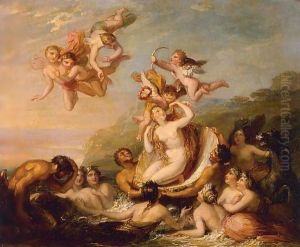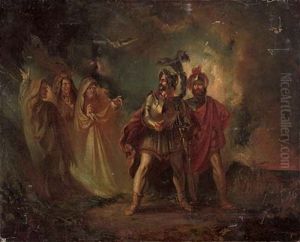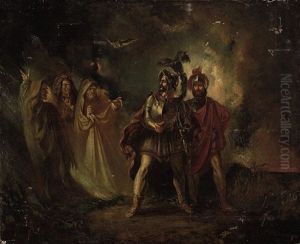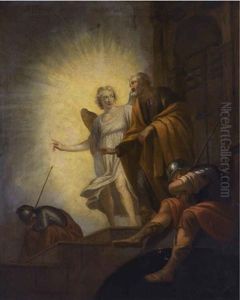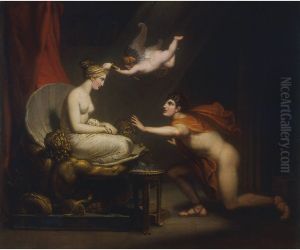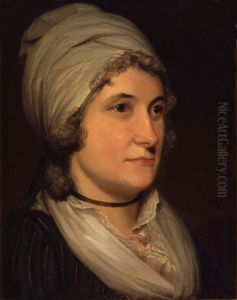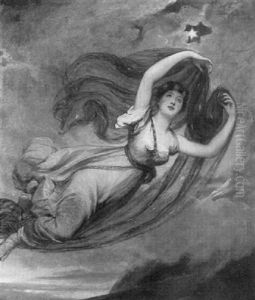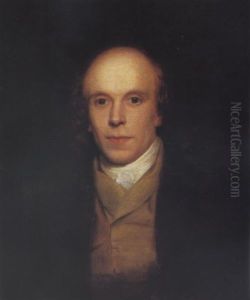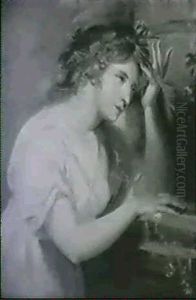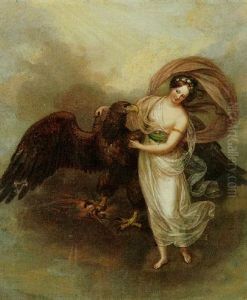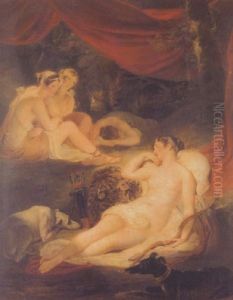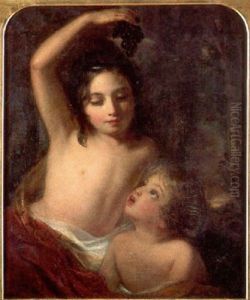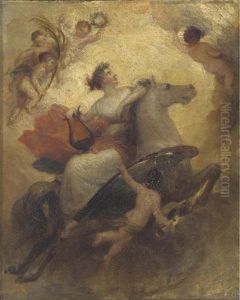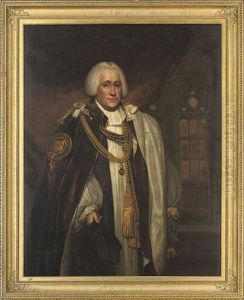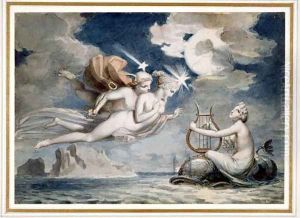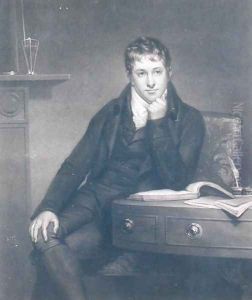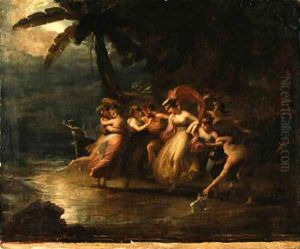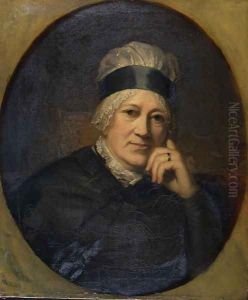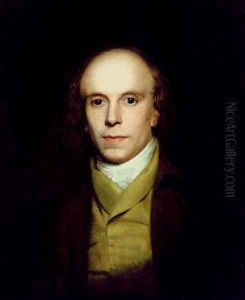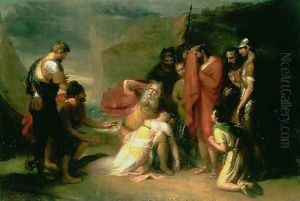Henry Howard Paintings
Henry Howard, Earl of Surrey, was a distinguished English nobleman, poet, and courtier of the Tudor period. Born in 1517 into one of the most powerful aristocratic families in England, Howard was the eldest son of Thomas Howard, 3rd Duke of Norfolk, a prominent figure in the court of King Henry VIII. He was educated at Trinity Hall, Cambridge, and grew up to be an influential figure in the English Renaissance cultural and literary scene.
Howard is often credited with introducing the sonnet form to English literature, adapting it from the Italian model pioneered by Petrarch. Along with Sir Thomas Wyatt, who was also part of the Tudor court, Howard played a crucial role in the development of English poetry, refining the sonnet structure that would later be famously used by Shakespeare. His poems were posthumously published in 1557 in 'Tottel's Miscellany,' which became one of the most influential poetry collections of the Tudor era.
However, Henry Howard's life was marred by political intrigue and the volatile nature of the Tudor court. His noble birth and close ties to the throne made him a significant figure, but also placed him in the midst of the power struggles that characterized Henry VIII's reign. In 1546, amidst a backdrop of shifting alliances and the king's deteriorating health, Howard was arrested and charged with treason. The specific accusations against him included using the royal arms in his personal heraldry, which was interpreted as a claim to the throne.
Despite a lack of concrete evidence, Howard was found guilty. His sentence was a stark reflection of the perilous nature of Tudor politics, particularly for those in close proximity to power. On January 19, 1547, just days before Henry VIII's death, Howard was executed by beheading at Tower Hill. His death marked the end of an era for the Howard family's prominence at court, though they would later regain some of their former influence.
Henry Howard, Earl of Surrey's legacy extends beyond his tragic end and the political drama of his time. He is remembered as a pioneering poet whose works contributed significantly to the English Renaissance and set the stage for the rich literary tradition that would follow. His life and writings offer valuable insights into the complexities of Tudor society, the evolution of English poetry, and the enduring power of artistic expression amidst the tumultuous backdrop of political upheaval.
